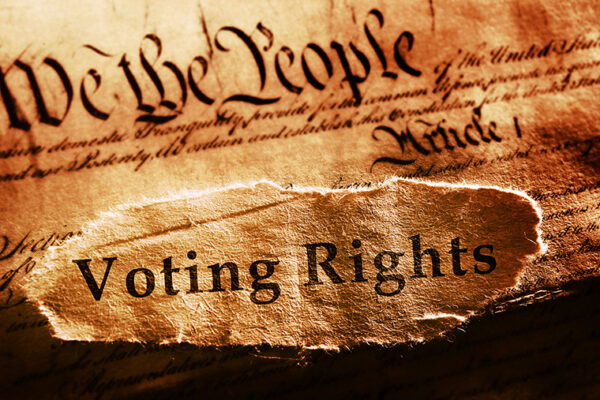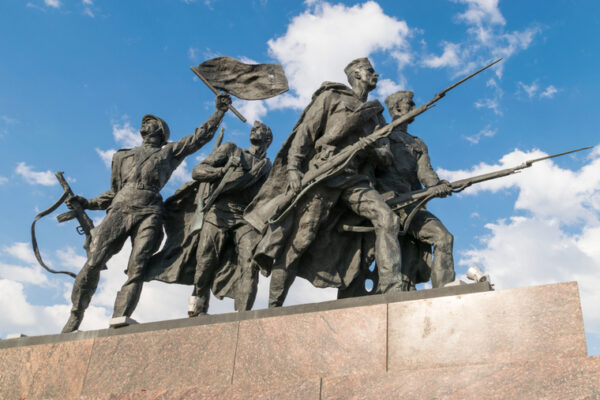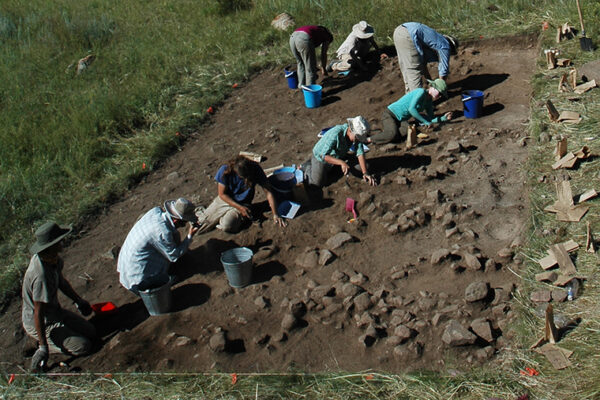After weeks of unrest in the former Soviet Union, news of Russian troops preparing to leave Kazakhstan and a pledge by Russia to not invade Ukraine are welcome signs of easing tensions in the region.
But questions remain: Can Russia be trusted to uphold its pledge to Ukraine? And how will the choice by Kazakhstan President Kassym-Jomart Tokayev to embrace Russia help shape the future of his country and Central Asia’s politics?

The answers to these questions may lie in the narratives emerging from these countries, according to James V. Wertsch, professor of sociocultural anthropology and of global studies, both in Arts & Sciences at Washington University in St. Louis.
“We need to recognize the power of deep-seated national narratives in shaping the behavior of nations,” said Wertsch, director emeritus of the university’s McDonnell International Scholars Academy and author of How Nations Remember: A Narrative Approach.
“These narratives are often so engrained in their cultures that they are impervious to evidence or rational argument. Any attempt to de-escalate tensions between Russia and Ukraine — or any conflicting countries — requires insight and superior negotiation skills to overcome these habits.”
Wertsch and his Washington University colleague Michael Frachetti, professor of anthropology, have decades of experience in Ukraine and Kazakhstan. Below, they share their perspectives on current situations and what the future may hold for the countries.
Can Russia be trusted to uphold pledge to not invade Ukraine?
In an op-ed published Dec. 29 in the South China Morning Post, Wertsch explained how dueling national narratives were stoking the threat of conflict between Ukraine and Russia. According to Wertsch, Russia has long promoted the idea that it is under constant threat from outside enemies — both literally and figuratively, in the form of dangerous ideas. This narrative has served to justify any efforts to maintain and protect Russia’s “place as a sovereign nation in control of its borders,” Wertsch said.
“Putin relied on this world view to justify Russia’s invasion of Georgia in 2008. He has used it many times in the ensuring years, and he is using it again today as he threatens Ukraine,” Wertsch wrote.
However, Ukraine’s national narrative has put a different spin on Putin’s words and actions.
‘Ryabkov’s statement is better than if he had said invasion was an option, but we are in a very dicey situation here, and just one mistake at the negotiation table or in the field could set off some really terrible things.’
James V. Wertsch
“Much of this narrative is about freedom-loving peasants and Cossacks, but it also recognizes violence and suffering at the hands of outside aggressors. The list of aggressors did not always include Russia, but this changed in the past decade as Ukrainians were shocked at Russian aggression,” Wertsch wrote.
“In this new context, what looks to Putin like a legitimate response to a threat looks to Ukraine like ruthless expansionism.”
The ongoing conflict took a less ominous turn Jan. 10. Following negotiations with the U.S., Russia’s deputy foreign minister, Sergei A. Ryabkov, declared, “We have no intention to invade Ukraine.” Wertsch said the move was a step in the right direction, but he hopes his optimism is not misplaced.
“Ukrainians (and Georgians) and others generally don’t believe statements such as this from Russia,” Wertsch explained. “In the 1994 Budapest Memorandum on Security Assurances, Russia and others signed an agreement as part of Ukraine’s agreement to give up nuclear weapons on its territory. This memorandum ensured Ukraine’s territorial integrity, but that did not stop Russia from annexing Crimea and starting an insurgent war — and shooting down the airliner — in 2014.
“Ryabkov’s statement is better than if he had said invasion was an option, but we are in a very dicey situation here, and just one mistake at the negotiation table or in the field could set off some really terrible things.”
With order restored, will Kazakhstan’s government lean toward autocracy or democracy?

Last week, at the request of Tokayev, Russian troops were deployed to Kazakhstan to help stabilize it. The deadly unrest reportedly stemmed from protests over the country’s income inequality, although even basic information has been difficult to verify given the government’s tight grip on communication in the days after the main conflicts, according to Frachetti.
Frachetti has conducted research in Kazakhstan for decades and has stayed in touch with contacts in the country during the unrest when possible.
According to Frachetti, Kazakhstan has always been seen as the stable, modernized, progressive example of a former Soviet republic — one that has been moving toward a more democratic system in recent years. Within Kazakhstan, there is a large group of politically engaged citizens and protests are common, but they are almost always small-scale, peaceful and receive only limited attention. And the government — although generally understood as autocratic — has been tolerant of protestors in the past. That’s what made the news of violent protests, destruction and swift government response so surprising, Frachetti said.
‘The future of Kazakhstan will be decided by the choices the government makes going forward — whether they want to pursue representative relationship with the populace or go down the road of greater autocracy.’
Michael Frachetti
“From people on the ground, I heard that the protesters who were talking about issues like oil and gas prices were quickly disbanded, after which opposition parties and thugs allegedly took over. Their goals were unclear, but I suspect they were trying to stoke instability, which could provide an opportunity for their varied agendas,” Frachetti said.
Now that order has been restored and Russian troops are preparing to leave, the remaining question is what the future holds for Kazakhstan and its people. Will the government’s harsh crackdown on protestors become commonplace as it is in neighboring China? Or will the government embrace open democratic demonstration and protecting citizens’ rights?
“It seems to me that the gap between the goals of government and the people is not so large,” Frachetti said. “The government wants to promote Kazakhstan as an important player in the global economy, as well as a bridge for Eastern and Western politics — such as in nuclear de-proliferation, space exploration, etc. They have robust government programs in place for translating these goals into education, research and other social programs that engage the public, and these goals are a source of pride for Kazakhstan’s citizens in most cases.
“Of course, there is definitely polarity in Kazakhstan between the rich and very poor, which has never been seriously challenged before now, and that is an important upshot from these protests.”
It is too soon to tell how the deadly unrest will shape the future of Kazakhstan, but political leaders and people on the ground appear to be forwarding the same narrative of working together toward a more productive future, Frachetti said.
“The future of Kazakhstan will be ultimately be decided by approaches the government takes going forward — whether they want to bolster a representative relationship with the populace or double down on the path toward greater autocracy,” Frachetti said.



